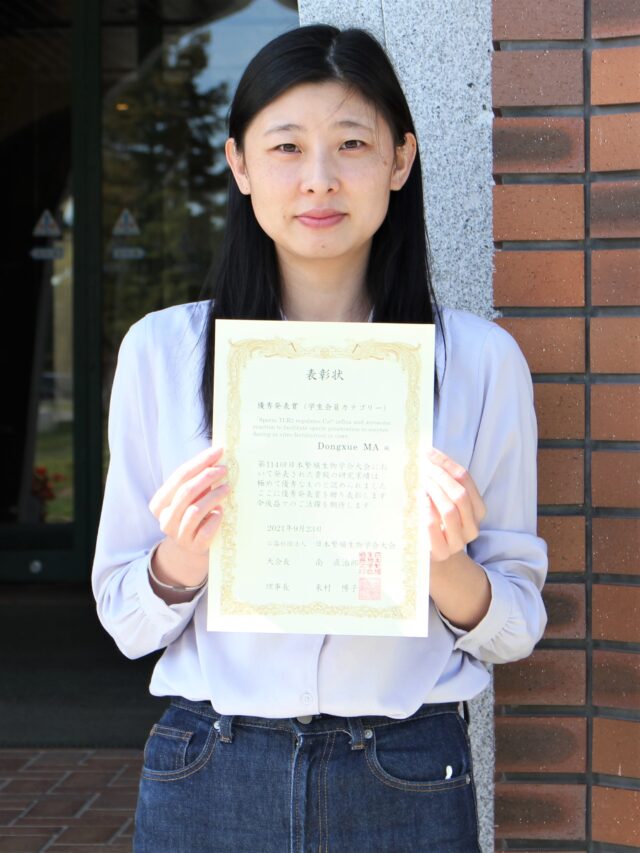Ms. Ma Dongxue, a second-year student in the Doctoral Program of Animal Science and Agriculture at the Graduate School of Animal and Veterinary Sciences and Agriculture (Supervisor: Professor Akio Miyamoto), received the Outstanding Presentation Award at the 114th Annual Meeting of the Society for Reproduction and Development held online at Kyoto University from September 21st (Tue.) to 24th (Fri.). Her presentation was chosen from 10 oral presentations selected via the first document screening. Ms. Ma’s award-winning subject was “Sperm TLR2 regulates Ca2+ influx and acrosome reaction to facilitate sperm penetration to oocytes during in vitro fertilization in cows.”
In mammals, toll-like receptors (TLRs) play an important role in the body’s innate immune response. The research group has found that TLR2 is present in the bovine uterus and fallopian tube and acts as a sensor for recognizing sperm. The group has also found that TLR2 with functions are expressed in bovine sperm. This study examined in detail how bovine sperm TLR2 is involved in the fertilization phenomenon. As a result, it was proved that sperm TLR2 regulates Ca2+ influx and acrosome reaction to facilitate sperm penetration to oocytes during in vitro fertilization in cows. A sperm passes through the uterus and the fallopian tube in the body until it meets an ovulated egg and fertilizes it. In the fallopian tube, where the sperm acquires fertilizing ability to fertilize the egg, it binds to TLR2, causing the secretion of bioactive molecules at high concentrations. The results of the study have been highly evaluated as they are likely to help improve in vitro fertilization techniques in cows and show a part of the new immunological communication between sperm and the uterus/fallopian tube, which leads to original in vivo fertilization.
Ms. Ma expressed her delight on receiving the award, saying, “It was a great surprise and a great honor to receive high praise at the academic society that focuses on basic research in life science. I am deeply grateful to the members of my research group who are very active and creative. I will further strive to conduct more important and useful research based on the results of the study.





